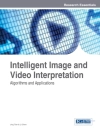This book presents a guide to navigating the complicated issues of quality and process improvement in enterprise software implementation, and the effect these have on the software development life cycle (SDLC). Offering an integrated approach that includes important management and decision practices, the text explains how to create successful automated solutions that fit user and customer needs, by mixing different SDLC methodologies. With an emphasis on the realities of practice, the book offers essential advice on defining business requirements, and managing change. This revised and expanded second edition includes new content on such areas as cybersecurity, big data, and digital transformation. Features: presents examples, case studies, and chapter-ending problems and exercises; concentrates on the skills needed to distinguish successful software implementations; considers the political and cultural realities in organizations; suggests many alternatives for how to manage and model asystem.
Table of Content
Introduction.- Part I: Determining Needs .- Assessing Business Requirements.- Build vs. Buy Issues.- Establishing Requirements (RFI, RFP).- Searching for Solutions.- Controlling Costs and Realistic Budgeting.- Analysis Methods and Tools.- Part II: Development Architecture .- Creating Requirement Documents using Analysis Tools.- The Data.- Legacy Systems and Data Conversion.- Business Process Reengineering.- Digital Transformation and Consumer Requirements.- Data Analytics and Data Warehouses.- Documentation & Acceptance Testing.- Part III: How to Implement .- Project Management.- Virtual Teams and Outsourcing.- Cyber Security, ISO 9000 and the Software Development Life Cycle.- Vendor Contract Considerations.- Going Live and Conclusions.
About the author
Dr. Arthur M. Langer is the Director of the Center for Technology Management at Columbia University, New York, NY, USA. Dr. Langer is also the Vice Chair of Faculty and the Executive Director of the Division of Innovation and Design at the School of Professional Studies. He serves on the faculty of the Graduate School of Education in the Department of Organizational Leadership. Dr. Langer is also Chairman and Founder of Workforce Opportunity Services (WOS), a non-profit NGO dedicated to assisting socially excluded youth and veterans in education and professional careers. His other publications include the Springer title Analysis and Design of Information Systems.












